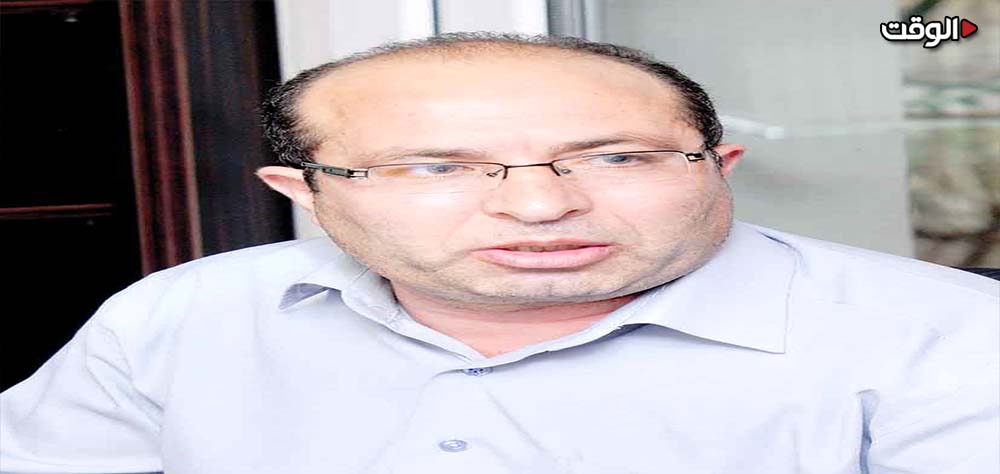Alwaght- In response to the terrorist attacks by Israeli-backed elements in Rask and Kerman that killed tens of civilians, Iran struck with missiles secret Mossad headquarters in the capital of Iraqi Kurdistan region Erbil. The attack drew protest from some Iraqi and autonomous region’s officials who categorically rejected Iran’s narrative about Mossad activities on the Kurdistan region soil.
Alwaght discussed aspects of the issue with Davoud Ahmadzadeh, a regional affairs expert.
Alwaght: Some Iraqi officials have taken stances against Iran’s military action, calling it in violation of the Tehran-Baghdad security agreement. What does the security agreement say about threats, and why does Iraq think Iran acted against it?
Ahmadzadeh: Before the security pact was signed between the two countries, following warnings by Iran to Iraq and Kurdistan region, it was planned that anti-Iranian Kurdish groups be totally removed from Kurdistan region due to the danger they posed to Iran’s national security. However, Kurdistan regional government did not fulfill its obligations despite Iranian warnings and security deal with Iran’s Supreme National Security Council under Secretary-General Ali Shamkhani. Erbil continued to allow these hostile Kurdish groups to seriously jeopardize Iranian security. The risks included assassinations inside Iran and the intelligence collection from Iran by Kurdistan region and supply to the Americans and Israeli regime.
In fact, due to the insecurity and ethnic divisions that exist in the Kurdistan region, in addition to the anti-Iranian elements, there are some foreign interventionist forces. The Israeli regime is trying to approach non-Arab forces based on a Ben-Gurin plan to normalize relations with them so that it can put pressure on Iran through the borders due to the ideological conflicts and rivalry with Iran in the region and also implement its terrorist goals easily in Iran and put pressures on Tehran. These reasons motivated an Iranian action to eliminate the spying Israeli headquarters for the good of home and regional security.
Alwaght: Does the agreement contain an article obliging Iraq to counter threats to Iran originating from its territory?
Ahmadzadeh: No, it does not. According to an article, Iraqi government was obliged to disarm the Kurdish militias and ban them from Kurdistan region by end of 2023. This agreement was signed by central government, and accordingly, terrorist actions against Iran is violation of the deal, giving Iran the right for self-defense and taking deterrent actions. Indeed, this is an issue of historical background and in the past Baghdad undertook some obligations, but so far neither the central government nor Kurdistan region have fulfilled them, and thus Iran’s action was aimed at protecting the security and thwarting the terrorists.
Alwaght: Why is there a gap between Iranian and Iraqi narrative about Mossad presence in Kurdistan region?
Ahmadzadeh: Iran has made efforts for the good of Iraqi unity and formation of a strong Iraqi government. Also, when Daesh (ISIS) terrorist organization invaded Iraq, Iran was the only country to defend Iraq’s territorial integrity and Kurdistan region and made sacrifices with blood to protect Iraqi peace and stability. But unfortunately there are ethno-sectarian gaps in Kurdistan region, and some Kurdish groups hold close ties with the Israeli regime and some trans-regional actors like the United States.
Despite the fact that there are efforts to block anti-Iranian terrorist activities, some separatist groups collude with the Israeli regime against Iran. If the central government reacts or files a suit against Iran with the Security Council, it should be said it would not do a stabilizing action. Any country seeing its security at stake, certainly takes measure to remove the threats.
Alwaght: How much do you think the political deals are effective in the Iraqi government’s stance on the Iranian attacks?
Ahmadzadeh: Unfortunately, in this case we could see signs of radicalism in the behavior of the Iraqi government. Despite the fact that they are aware of the reality that the Kurdistan region’s terrorist activities and anti-Iranian groups have caused Iran’s reaction, they try to raise marginal issues. Iraq must fulfill its security obligations towards the Islamic Republic of Iran. Iran and Iraq should consult to resolve the differences in order to achieve the desired result. The Islamic Republic negotiated many times with Iraq and Kurdish leaders and they should be committed to the terms of their agreement and obligations.
Alwaght: Why did the Iraqis react this strongly to Iranian anti-terror attacks while they did not when the US attacked their defense ministry and assassinated a senior commander of the Popular Mobilization Forces (PMF)?
Ahmadzadeh: The central government of Iraq is divided. Actually, it does not give a picture of a united and powerful government that thinks and acts in line with national interests. We also witness the influence of foreign and regional powers that have hostile positions to the Islamic Republic of Iran in the Iraqi government. This division is an influential factor. Another factor is the differences of Baghdad with Erbil.
In fact, the solution lies in a powerful government that backs Iraqi unity and bans activities of hostile groups that destabilize the region. Such an opportunity should be provided to allow the government act on the basis of agreements with the neighbors and stay committed to its security obligations. Should this happen, differences between the two countries will decrease to a minimum.
Alwaght:Do you think this rift is transient or will Iraq pursue it?
Ahmadzadeh: It seems that pressures have been put on Baghdad by Kurdish leaders, and the troubles caused by some influential countries in the region have caused Iraqi government to show a strong reaction. But the passage of time will show that Iran and Iraq are strategic partners and their differences can certainly be settled.



























